Selen
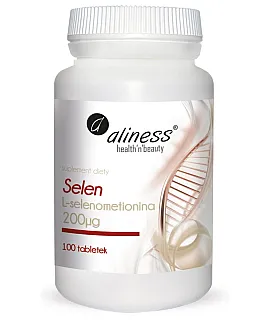
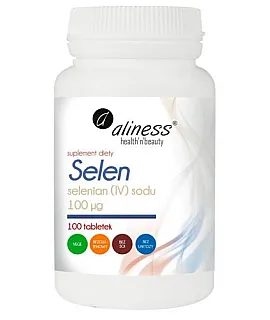
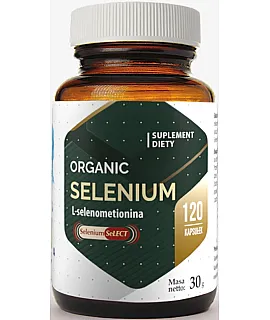
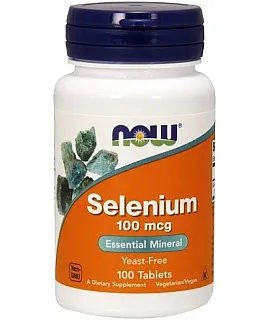
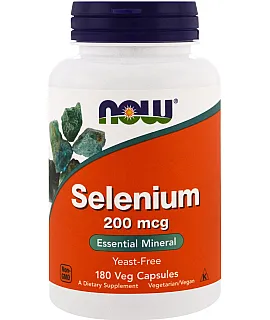
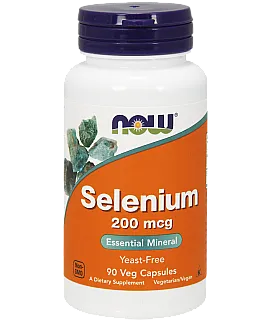
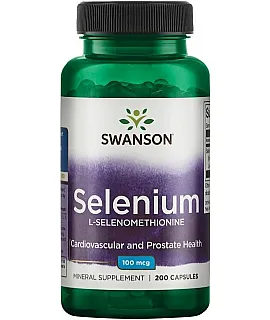
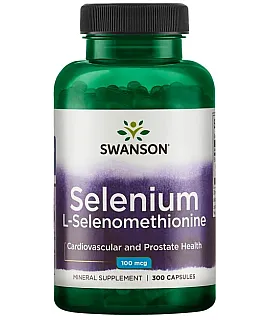
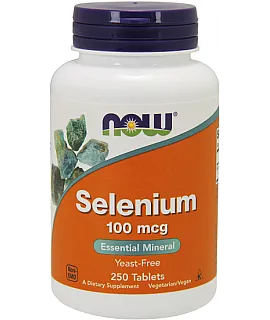

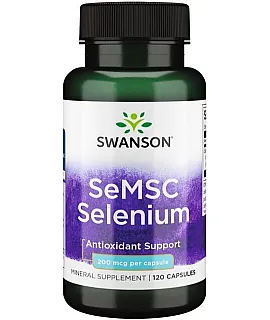
Selenium is an essential micronutrient for the proper functioning of the body, which plays an important role in many processes in the body. Dietary supplements containing selenium are an effective way to supplement this valuable element, especially for people whose daily diet does not provide enough selenium.Read more
Why is it worth supplementing with selenium?
Selenium is a trace element that occurs naturally in the soil and certain foods. Unfortunately, the content of this element in food can be insufficient, especially in people who follow restrictive diets or live in selenium-poor areas. Selenium deficiency can lead to a number of health problems, such as a weakened immune system, thyroid dysfunction and an increased risk of cancer.
Selenium supplementation is a simple and effective way to correct deficiencies of this element in the body. Selenium supplements are available in various forms, such as tablets, capsules or liquids. When choosing a supplement, it is worth paying attention to its composition and origin - preparations containing organic selenium, such as in the form of L-selenomethionine, work best.
Regular use of supplements with selenium helps maintain normal levels of this element in the body, which translates into better functioning of the immune system, thyroid and other organs. Selenium also exhibits strong antioxidant properties, thus protecting cells from damage caused by free radicals and oxidative stress.
Natural sources of selenium in the diet
While selenium supplementation is an effective way to correct deficiencies, it is worth remembering that this valuable element is also found in many foods. The richest source of selenium is Brazil nuts - just a few nuts a day are enough to cover the body's needs for this micronutrient. Other foods rich in selenium include tuna, eggs, poultry, garlic and broccoli.
People who want to ensure a proper supply of selenium should include a variety of products in their diet, especially those of animal origin. However, it is worth remembering that the selenium content of foods can vary depending on the region and how the crops are grown. Therefore, even with a varied diet, it is worth considering selenium supplementation to ensure that the body is getting the right amount of this element.
Selenium and thyroid health
One of selenium's key functions in the body is its effect on thyroid function. This small gland produces hormones that regulate metabolism and many other vital processes. Selenium is part of enzymes called deiodinases, which are involved in the activation and deactivation of thyroid hormones.
Selenium deficiency can lead to thyroid disorders such as hypothyroidism and Hashimoto's disease. Studies have shown that selenium supplementation can improve thyroid function and alleviate symptoms of thyroid disorders. This is especially important for pregnant women, as proper thyroid function is crucial for fetal development.
Dietary supplements containing selenium, such as tablets or capsules, are an effective way to maintain normal levels of this element in the body and support thyroid function. The recommended daily dose of selenium is usually between 50 and 200 mcg, depending on age, gender and health. Before starting supplementation, it is worth consulting a doctor or pharmacist to choose the right dose and form of the product.
Effect of selenium on the immune system
Selenium also plays an important role in the proper functioning of the immune system. This micronutrient is part of proteins called selenoproteins, which protect the body from infections and inflammation. Adequate levels of selenium in the body help produce antibodies and stimulate the activity of T lymphocytes, which are key to immunity.
Studies have shown that selenium deficiency can weaken the immune system and increase susceptibility to infection. In contrast, selenium supplementation can boost immunity, especially in the elderly or those struggling with chronic illnesses. Selenium supplements, such as tablets or capsules, are a simple way to support the immune system and protect against infections.
It is worth remembering that selenium works synergistically with other nutrients, such as vitamin C, vitamin E and zinc. Therefore, to fully support the immune system, it is advisable to eat a varied diet rich in fruits, vegetables and other sources of antioxidants. Selenium supplementation can be a valuable addition to a healthy lifestyle, but should not replace a balanced diet.
Selenium and fertility and reproductive health
Selenium also plays an important role in maintaining reproductive health, in both men and women. In men, adequate selenium levels affect sperm quality and sperm motility. Studies have shown that selenium supplementation can improve semen parameters and increase the chances of conception.
In women, selenium is important for maintaining the health of the reproductive system and the normal course of pregnancy. Deficiency of this element can increase the risk of miscarriage or birth defects in the baby. Selenium supplementation, on the other hand, can promote fertility, reduce the risk of pregnancy complications and support normal fetal development.
Dietary supplements containing selenium, such as tablets or capsules, are a safe and convenient way to maintain normal levels of this element in the body, which is especially important for those planning to have offspring or who are pregnant. The recommended dose of selenium for pregnant women is usually 60-70 mcg per day. Before starting supplementation, it is a good idea to consult a doctor or midwife to choose the right dose and form of the product.
The most important information on the properties of Selenium
- Support of thyroid function and regulation of metabolism
- Strengthening the immune system and protection against infections
- Improving reproductive health and fertility
- Protection of cells from oxidative stress and damage
- Maintaining healthy skin, hair and nails